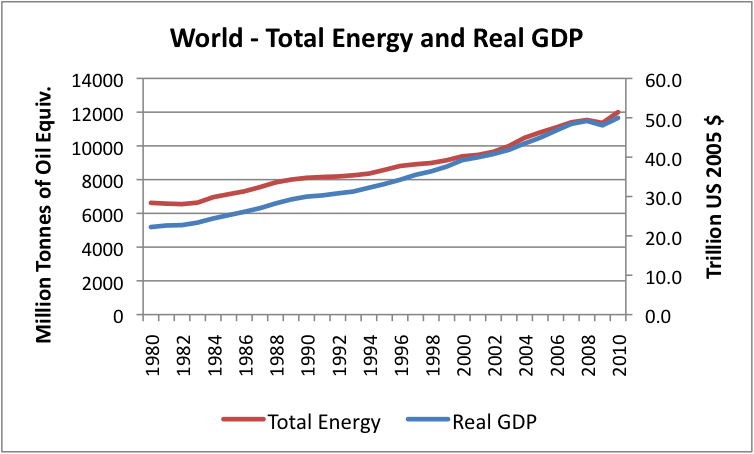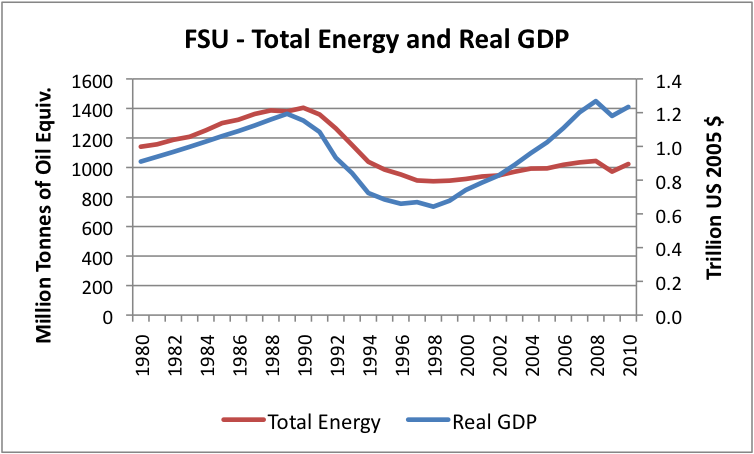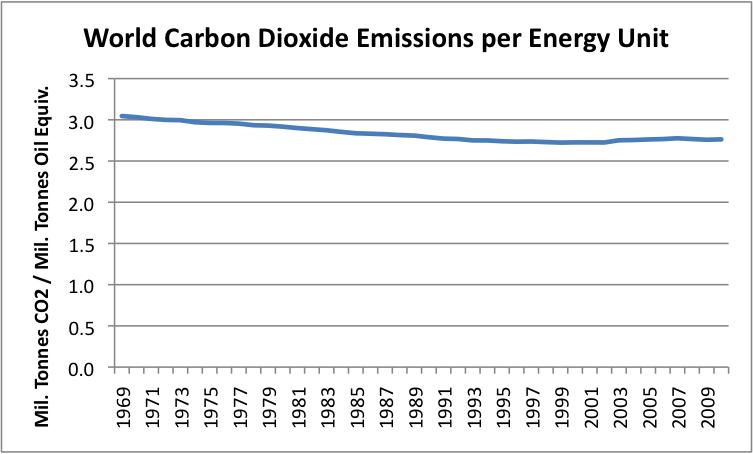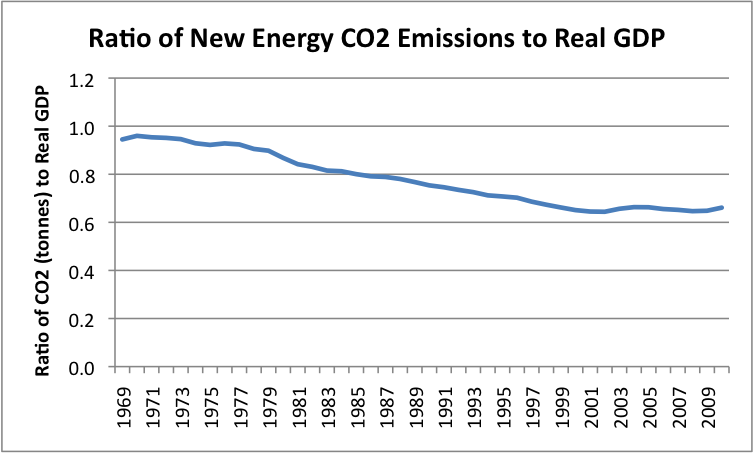Correlation Between Energy Use And GDP Growth
The OilDrum asks the question if a decoupling of energy consumption from GDP growth is possible.
Unsurprisingly they come up with a negative answer.
Prior to 2000, world real GDP (based on USDA Economic Research Institute data) was indeed growing faster than energy use, as measured by BP Statistical Data. Since 2000, energy use has grown approximately as fast as world real GDP–increases for both have averaged about 2.5% per year growth. This is not what we have been told to expect.
Why should this “efficiency gain” go away after 2000? Many economists are concerned about energy intensity of GDP and like to publicize the fact that for their country, GDP is rising faster than energy consumption. These indications can be deceiving, however. It is easy to reduce the energy intensity of GDP for an individual country by moving the more energy-intensive manufacturing to a country with higher energy intensity of GDP.
If GDP growth and energy use are closely tied, it will be even more difficult to meet CO2 emission goals than most have expected. Without huge efficiency savings, a reduction in emissions (say, 80% by 2050) is likely to require a similar percentage reduction in world GDP. Because of the huge disparity in real GDP between the developed nations and the developing nations, the majority of this GDP reduction would likely need to come from developed nations. It is difficult to see this happening without economic collapse.






